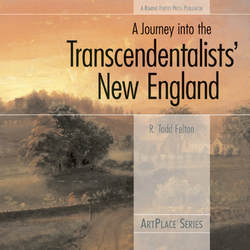Читать книгу A Journey Into the Transcendentalists' New England - R. Todd Felton - Страница 10
На сайте Литреса книга снята с продажи.
Transcendentalism: An Introduction
ОглавлениеRalph Waldo Emerson.
“[Transcendentalism is] the very oldest of thoughts cast into the mould of these new times.”
—Ralph Waldo Emerson
It is a delightful irony that the central figure of the Transcendentalist movement—the minister, poet, and lecturer Ralph Waldo Emerson—did not particularly like the word “Transcendentalism.” The term wasn’t even his; it originally came from German philosopher Immanuel Kant’s 1781 Critique of Pure Reason. In Critique, Kant uses the term to refer to a class of ideas that “transcend” experience, but Emerson preferred to think of the Transcendentalist movement as one that looked toward a bright future: “What is popularly called Transcendentalism among us, is Idealism; Idealism as it appears in 1842.”
While some considered Transcendentalism alarmingly radical and new, Emerson felt quite the opposite: “The first thing we have to say respecting what are called new views here in New England, at the present time, is, that they are not new, but the very oldest of thoughts cast into the mould of these new times.”
